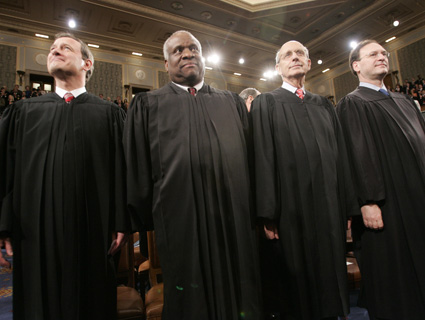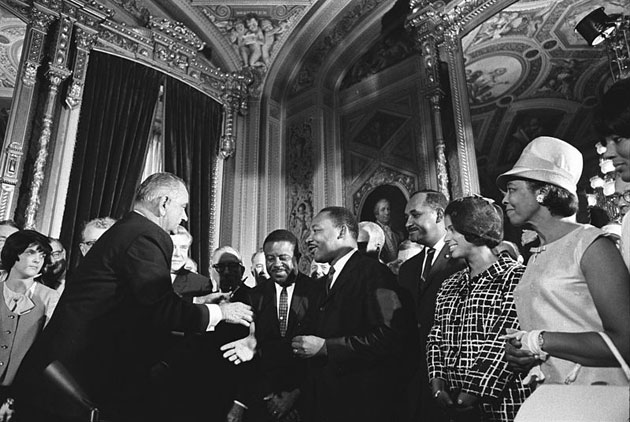
<a href="http://www.shutterstock.com">tanshtyl </a>/Shutterstock
So this is where the Roberts Court draws the line on civil liberties: warrantless, forced blood tests. The Supreme Court heard arguments Wednesday in Missouri v. McNeely, on whether someone arrested for drunk driving can be forced to provide blood samples without consent or a warrant.
Missouri’s top court had unanimously rejected a argument by the state that there should be a categorical exception to the Fourth Amendment warrant requirement in all DWI cases. And it looks as though the highest court in the land will go the same way.
According to SCOTUSblog, “Even allowing for the reality that what is said at a Supreme Court hearing does not necessarily dictate the outcome, now and then a case comes along where the Justices join so obviously in a common pursuit of a compromise that little suspense remains.” Bad news for vampire cops.
Lawyers for the state and federal government “endlessly repeat[ed] the claim that there would never be enough time to get a warrant before alcohol content would dissipate, [but it] seemed to impress not one member of the Court,” according to SCOTUSblog.
The justices saw the “use of a needle to take a blood sample as quite an intrusive gesture by the government,” and were not cool with the Fourth Amendment being junked in all drunk driving cases when cops want a blood draw.
Steven R. Shapiro, the ACLU’s Legal Director, who is representing the respondent, Tyler McNeely, said in a statement that even beyond civil liberties, forbidding warrantless blood tests would not hamper law enforcement: “There’s no evidence that those delays [in getting a warrant] interfere with the state’s ability to enforce drunk driving laws.”
Twenty-six states already ban the drawing of blood without a warrant. “Once we say police don’t need a warrant,” conservative Justice Antonin Scalia warned, “the game’s over.” (But he, Justice Anthony Kennedy, Justice Ruth Bader Ginsberg, and the ACLU’s Shapiro all agreed that there could be exceptions for emergency circumstances in which obtaining a warrant took too long.)
“The interest that is being preserved is a very important principle,” Shapiro said. “That before the government conducts a search, and especially a search [so] intrusive that [it] involves putting a needle in your arm over your objection when you’re restrained, that decision ought not to be made by the police themselves absent a true emergency, but ought to be reviewed and approved by a judge. That’s the principle under which our constitutional law operates.”















